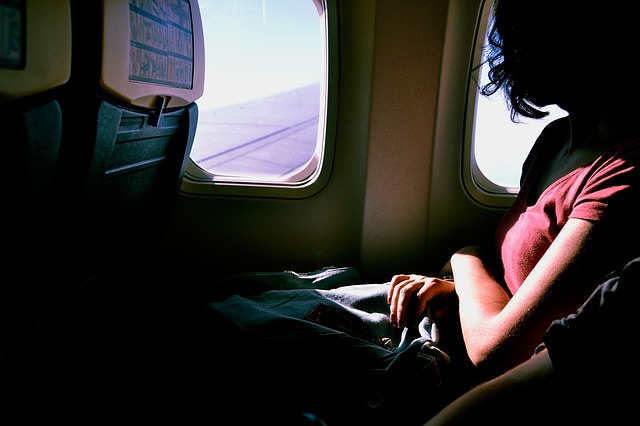Scientists have finally figured out why jet lag from flying east takes longer to recover from, Live Science reports.
A mathematical model and study headed by scientists at the University of Maryland have found that how certain cells in the human brain react to crossing time zones play a big part in jet lag recovery. The cells, called “neuronal oscillator cells,” are responsible for regulating a person’s circadian rhythm, or biological clock, by synchronizing with each other and by linking up with external cues, according to Michelle Girvan, co-author of the study and associate professor of physics at the university.
These cells, however, don’t work on a perfect 24-hour schedule, Girvan explained to Live Science. Their cycle of activities follows a schedule that lasts a bit longer, around 24.5 hours.
That means it’s easier for a person to lengthen a day, such as flying west across time zones, than to shorten a day, by flying east.
The scientists added this cell behavior to their model of jet lag, Girvan said. They discovered that recovering from jet lag doesn’t exactly fit into a neat pattern of the widely accepted advice to “give yourself one day of recovery for every time zone you crossed.”
As it turns out, the amount of time it takes for a person to recover from jet lag and adjust to a new time zone depends on both the number of time zones crossed and the direction in which the person traveled.
The study showed that for people travelling westward, someone crossing three time zones would fully recuperate in around four days, while recovery for six time zones would take about six days. For those crossing nine time zones, it would take a little less than eight days to recover.
But when a person travels to the east, the recovery times are less uniform. Someone crossing three times zones eastward would need four days to recover, but for six time zones, it becomes over eight days. For nine time zones, recovery would take 12 days. Going through 12 time zones, either east or west, the recovery period is the same at nine days.
Girvan also noted that not everyone has a circadian rhythm of exactly 24.5 hours – it varies among people. In addition, external cues such as sunlight, and how well a person reacts to these cues, will determine how he or she will adjust to the new time zone.
The researchers are hopeful that their study and the model can be used to figure out more efficient ways to beat jet lag.
In the meantime, planning ahead can help a person adjust. Girvan suggests that for those traveling six time zones to the east, they can start by setting their watches and clocks by one or two hours ahead a few days before flying. Also, matching external cues from the time a person leaves and the time a person arrives would help, like getting sunlight if it’s daytime in the new time zone, and avoiding artificial lights if it’s night to help the human biological clock adjust, Girvan said.
The study was published in the journal Chaos.
























